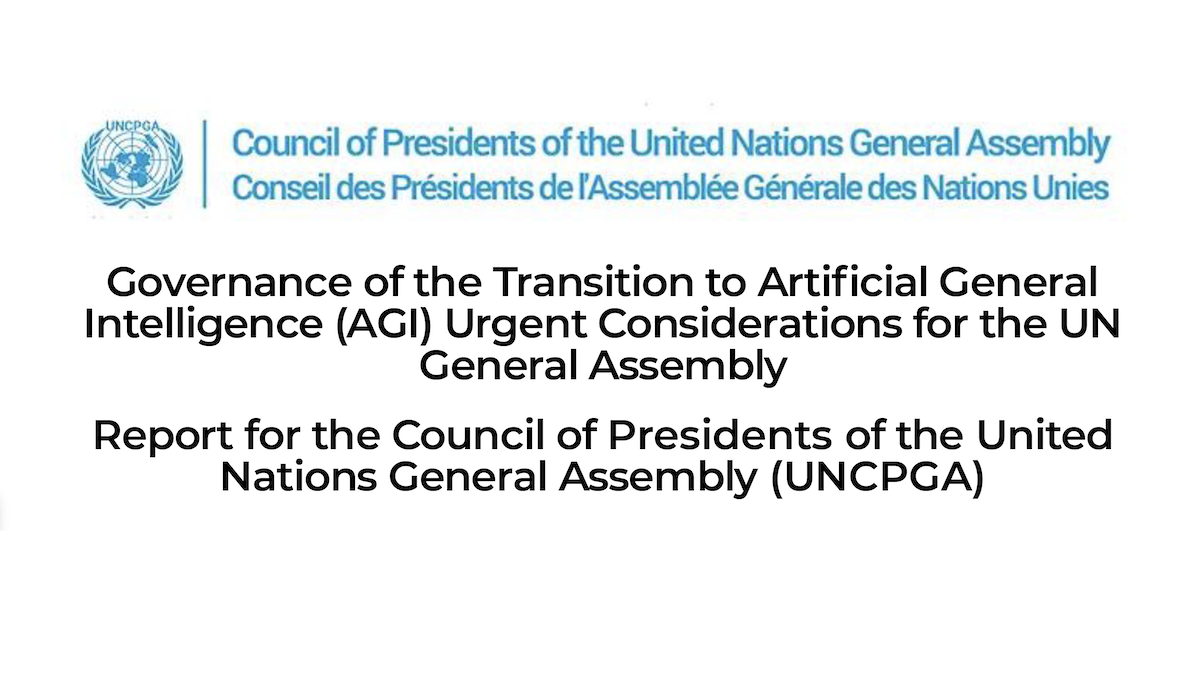
Governance of the Transition to Artificial General Intelligence (AGI)
Urgent Considerations for the UN General Assembly
Report for the Council of Presidents of the United Nations General Assembly (UNCPGA)
Executive Summary
AI systems are rapidly advancing towards artificial general intelligence (AGI), characterized by systems capable of equaling or surpassing human intelligence in diverse cognitive tasks. With the largest financial investments in history driving unprecedented R&D efforts, industry leaders and experts anticipate AGI could emerge within this decade,1 creating extraordinary benefits to humanity. Among these benefits, AGI could accelerate scientific discoveries related to public health, transform many industries and increase productivity, and contribute to the realization of the Sustainable Development Goals.
Nevertheless, AGI could also create unique and potentially catastrophic risks. Unlike traditional AI, AGI could autonomously execute harmful actions beyond human oversight, resulting in irreversible impacts, threats from advanced weapon systems, and vulnerabilities in critical infrastructures. We must ensure these risks are mitigated if we want to reap the extraordinary benefits of AGI.
To effectively address these global challenges, immediate and coordinated international action supported by the United Nations is essential. Such actions should be initiated by a special UN General Assembly specifically on AGI to discuss the benefits and risks of AGI and potential establishment of a global AGI observatory, certification system for secure and trustworthy AGI, a UN Convention on AGI, and an international AGI agency. Without proactive global management, competition among nations and corporations will accelerate risky AGI development, undermine security protocols, and exacerbate geopolitical tensions. Coordinated international action can prevent these outcomes, promoting secure AGI development and usage, equitable distribution of benefits, and global stability.

